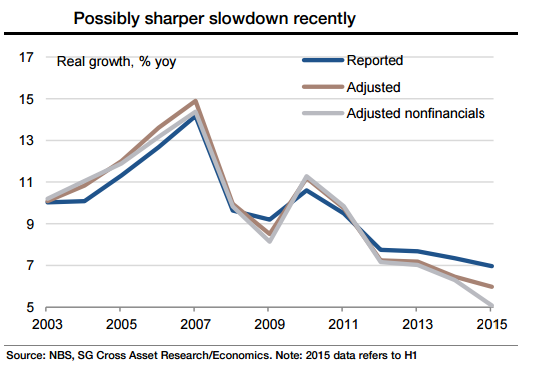Emerging Asian currencies fell on Friday, extend their losing streak to another week, following the worst Chinese factory activity survey in 6-1/2 years. China's flash Caixin manufacturing PMI declined in August to 47.1 from a final reading of 47.8 in July. This is the lowest level since March 2009.
Greek PM resignation, escalating North-South tensions in Korean peninsula, and more importantly, a potential delay in Fed hike to Dec or even next year, continue to rattle markets.
Emerging Asian currencies were already on course for weekly losses as China's stocks kept losing ground, underscoring concerns that unstable financial markets may hit the world's second-largest economy and global growth further.
"The perfect storm that has enveloped EM local markets looks set to continue," analysts for Barclays said in a note to its clients.
The Malaysian ringgit hit a fresh pre-peg 17-year low. The won fell 1.8 percent against the dollar this week. The ringgit lost as much as 1.1 percent to 4.1830 per dollar, its weakest since Aug. 31, 1998. Other emerging Asian currencies were on the course of weekly losses. Thailand's baht has lost 1.2 percent so far this week. The Taiwan dollar has fallen 1.1 percent throughout the week . India's rupee has dropped 1.3 percent. The Philippine peso ended the week down 0.6 percent.
"The implications for growth spill-overs, competitiveness and disinflation are likely to be more keenly felt in EM than DM" added Barclays.
Capital outflows may have reaccelerated in China, echoing recent selloffs in other EM markets. This is likely to tighten domestic liquidity conditions significantly and increase the need of more easing measures. Despite recent short-term liquidity injections by the PBoC, there is risk for further cuts.
The perfect storm engulfing Asia FX looks set to continue

Friday, August 21, 2015 11:55 AM UTC
Editor's Picks
- Market Data
Most Popular



 Elon Musk’s Empire: SpaceX, Tesla, and xAI Merger Talks Spark Investor Debate
Elon Musk’s Empire: SpaceX, Tesla, and xAI Merger Talks Spark Investor Debate  FxWirePro- Major Crypto levels and bias summary
FxWirePro- Major Crypto levels and bias summary  BTC Flat at $89,300 Despite $1.02B ETF Exodus — Buy the Dip Toward $107K?
BTC Flat at $89,300 Despite $1.02B ETF Exodus — Buy the Dip Toward $107K?  Nasdaq Proposes Fast-Track Rule to Accelerate Index Inclusion for Major New Listings
Nasdaq Proposes Fast-Track Rule to Accelerate Index Inclusion for Major New Listings 






























